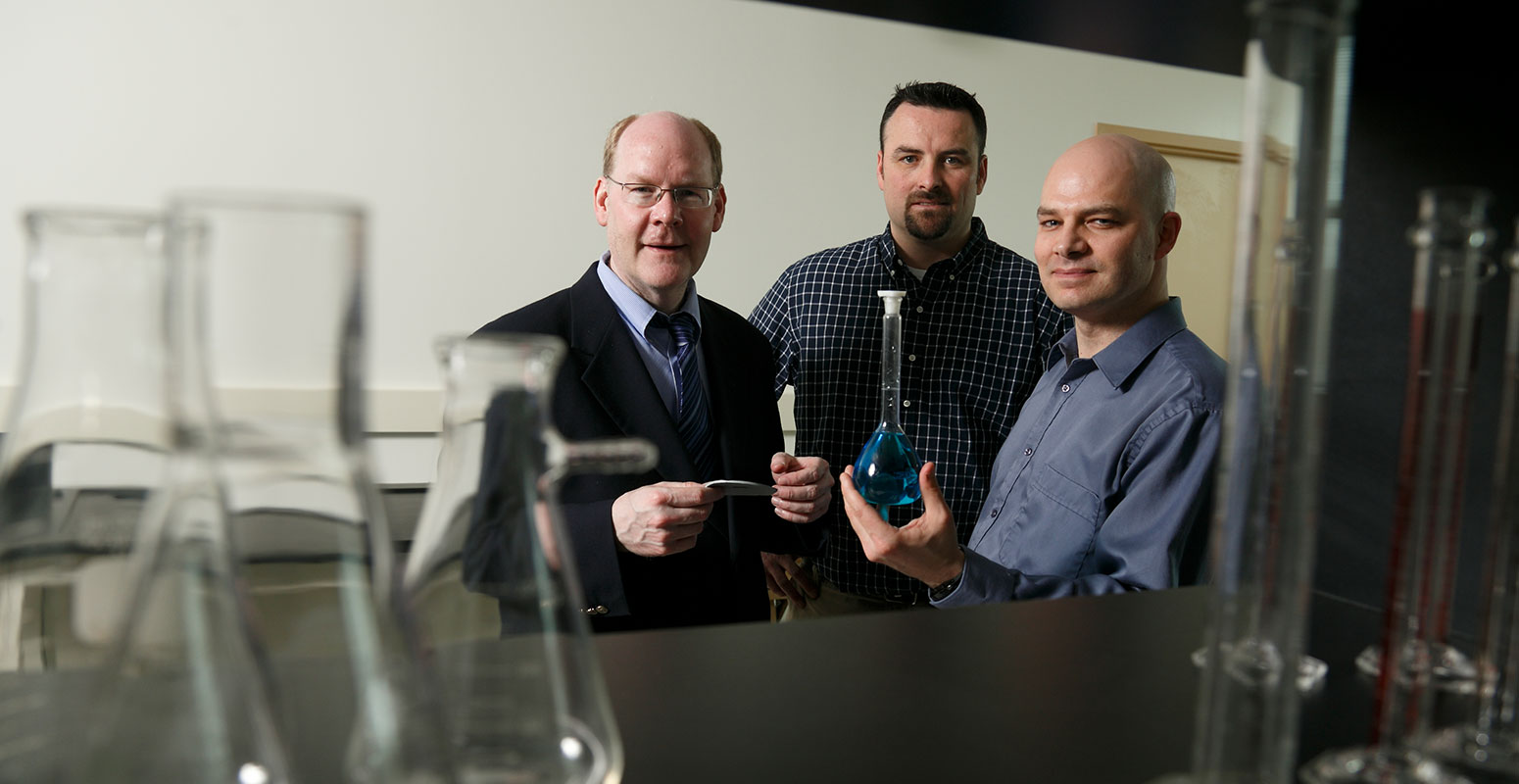A London firm is making cleaning as easy as turning on a light.
Sunwash Technologies has developed an additive for plastic coatings or paints to create a self-cleaning polymer surface for counters and floors.
The self-cleaning surface helps break down biological pollutants, oils, natural toxins, pesticides and other organic material when exposed to oxygen and light.
The material is being tested in food-processing plants in the London area.
“We think there’s a huge potential. Even though we have not marketed the product we have already had companies contact us,” said Dan Jenken, a Sunwash co-founder.
Jenken said the coating doesn’t replace normal cleaning but makes it easier and more effective. The self-cleaning surfaces are more environmentally friendly, reducing the need for harsh, toxic cleaning products.
The coatings don’t degrade or wear out after years of use. The stronger the light, the more effective the cleaning process.
Sunwash was born out of a public-private partnership.
Jenken is a co-owner of a Line-X franchise, which applies polyurethane coatings for industrial applications and truck bed linings.
He linked up with Patrick Therrien, business development manager of WORLDDiscoveries, a London agency that finds commercial applications for basic research, and Paul Charpentier, an associate professor in chemical and biochemical engineering at Western University.
Therrien said the primary market for the additive is food-processing plants and restaurants but it may eventually be available in products for household use, keeping kitchens and bathrooms clean.
The company has a research lab at a the Stiller Centre and is talking with manufacturers to produce the compound in commercial quantities.
The company has received a grant from FedDev Ontario and was also a winner in this year’s Venture London Awards for new businesses.
Jenken said the new self-cleaning material could be on the market soon.
“We are about six months away from being able to hand someone the product in a box and say it’s ready to use,” he said.
HOW IT WORKS
- Light-reactive titanium- dioxide compound added to plastics or paints
- Light activates an oxidation process that turns organic pollutants into harmless carbon dioxide and water.
- Reaction occurs at any temperature, works continuously.
Source: London Free Press


